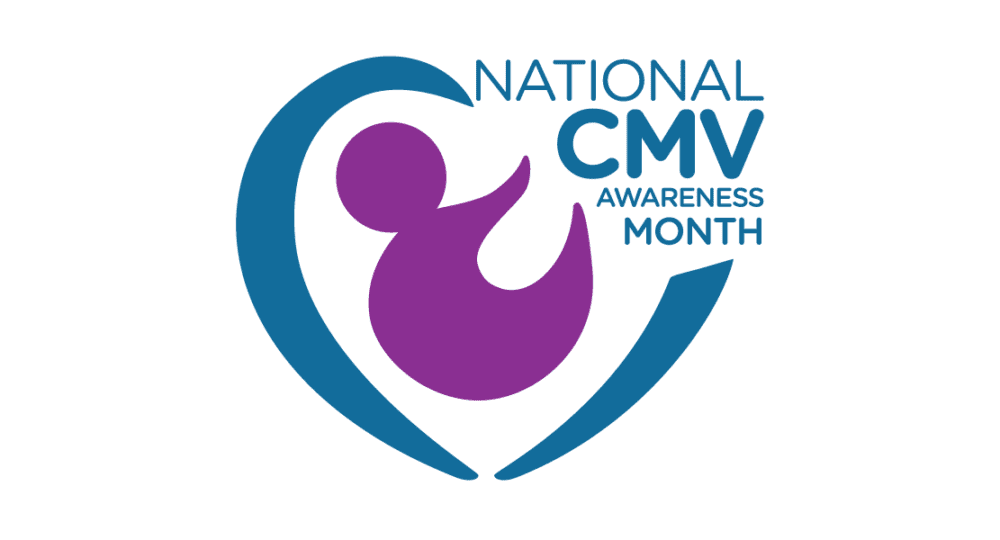Cytomegalovirus (CMV) is a common virus that can infect people of all ages. Over half of adults by age 40 have been infected with CMV. A healthy person’s immune system will usually keep the virus from causing illness, and most people infected with CMV show no signs or symptoms. Most people with a CMV infection aren’t aware they have been infected.
However, CMV can have a much harsher impact on babies. When a baby is infected with CMV, it is called congenital CMV. CMV is the most common infectious cause of birth defects and the leading non-genetic cause of hearing loss in infants in the United States. About 1 out of every 200 babies born has a congenital CMV infection. Most babies born with congenital CMV never show signs or have health problems, but 1 out of every 5 of these babies will face long-term health consequences.
Signs of congenital CMV infection include:
- Rash
- Jaundice (yellowing of the skin or whites of the eyes)
- Microcephaly (small head)
- Small size at birth or growth problems
- Liver, spleen, or lung problems
- Seizures
- Retinitis (damaged eye retina)
- Thrombocytopenia (low blood platelet levels)
- Hearing or vision loss
CMV is transmitted in body fluids, including saliva, urine, blood, tears, semen, and breast milk. 1 out of 3 pregnant women who become infected with CMV during their pregnancy will pass the virus to their unborn child. This is more likely to happen if it the woman’s first time getting a CMV infection.
Yet, only 9% of women even know about cytomegalovirus.
June has been named National Congenital Cytomegalovirus Awareness month, with the goal to increase awareness of this virus, and thereby hopefully decrease its impact on infants.
Possible long-term health problems of babies with congenital CMV include:
- Hearing loss
- Developmental and motor delay
- Mental disability
- Vision loss
- Microcephaly (small head)
- Seizures
Hearing loss can even occur in babies without other signs of congenital CMV. When this happens early it is often detected on the newborn hearing test, but it can also develop later. Children with congenital CMV should get regular hearing checks. The earlier a hearing problem is identified, the earlier the child can begin therapy to help. Speech and occupational therapies can help the child develop language, social, and communication skills.
Treatment for babies with signs of congenital CMV includes antiviral medication (valganciclovir or ganciclovir). This may improve hearing and developmental outcomes but can have serious side effects so administration should be monitored closely.
Doctors do not routinely test pregnant women for CMV infection because laboratory tests cannot predict which babies will become infected with CMV or have long-term health problems.
Pregnant women should practice good personal hygiene habits and take precautions to lessen their risk of getting infected with CMV. Ways to lessen the chance of getting a CMV infection involve reducing contact with saliva and urine from babies and young children.
These include:
- Not sharing food, utensils, drinks, or straws
- Avoiding contact with saliva when kissing a child
- Not sharing a toothbrush or putting a pacifier in your mouth
- Washing your hands, especially after changing diapers or wiping a child’s nose or drool
There is no current vaccine to prevent congenital CMV, but this is being studied and developed. The hope is that a CMV vaccine preventing transmission of CMV to a baby after maternal infection would greatly reduce long-term disabilities in infants.
—
Resources:
Graphic courtesy of CDC





